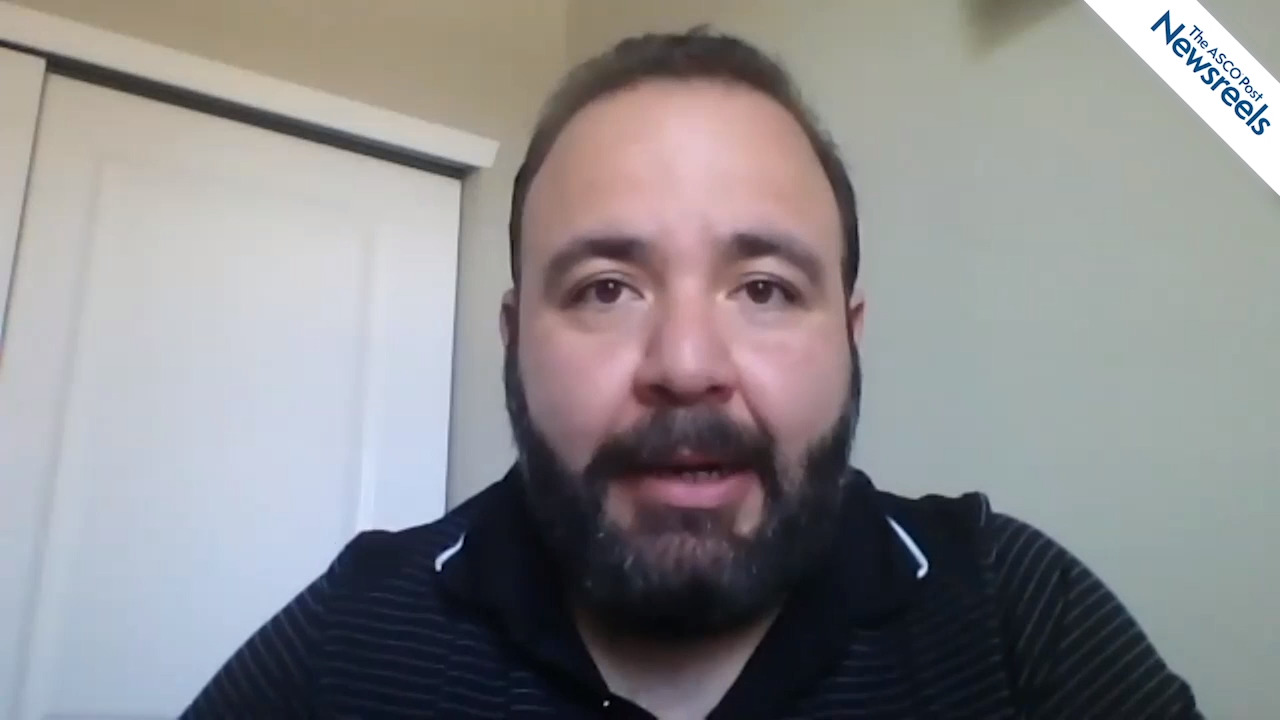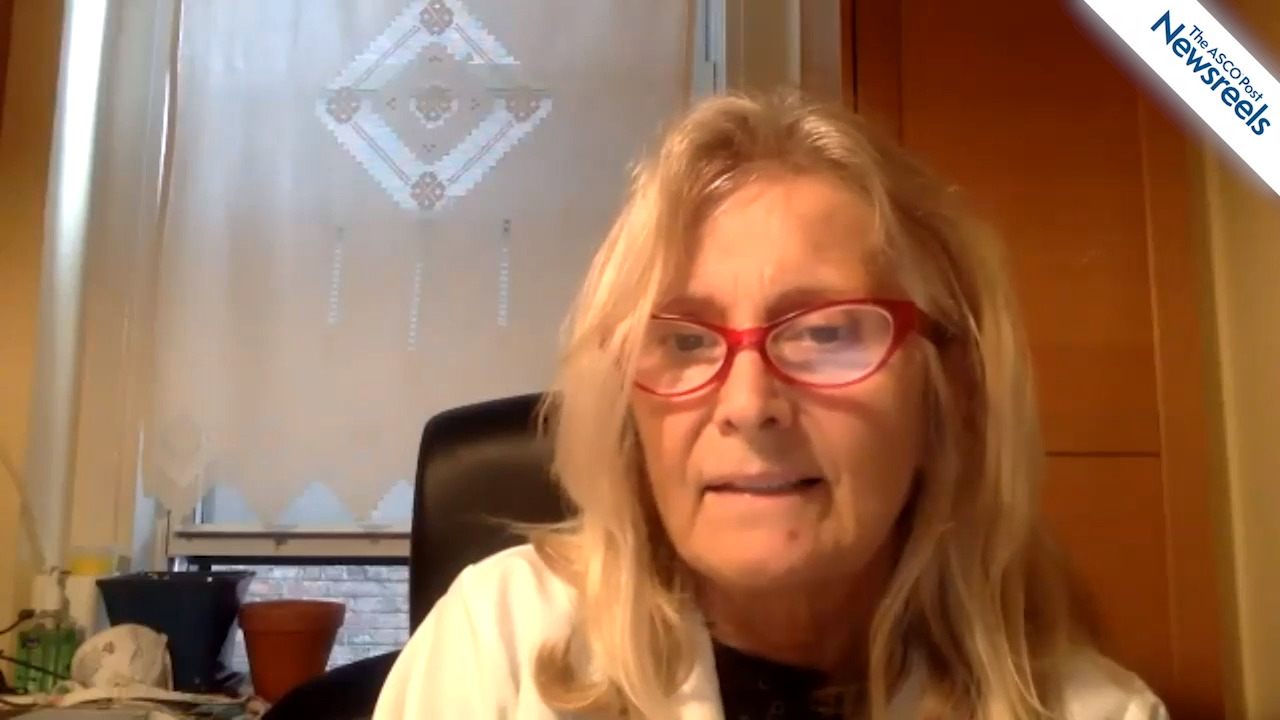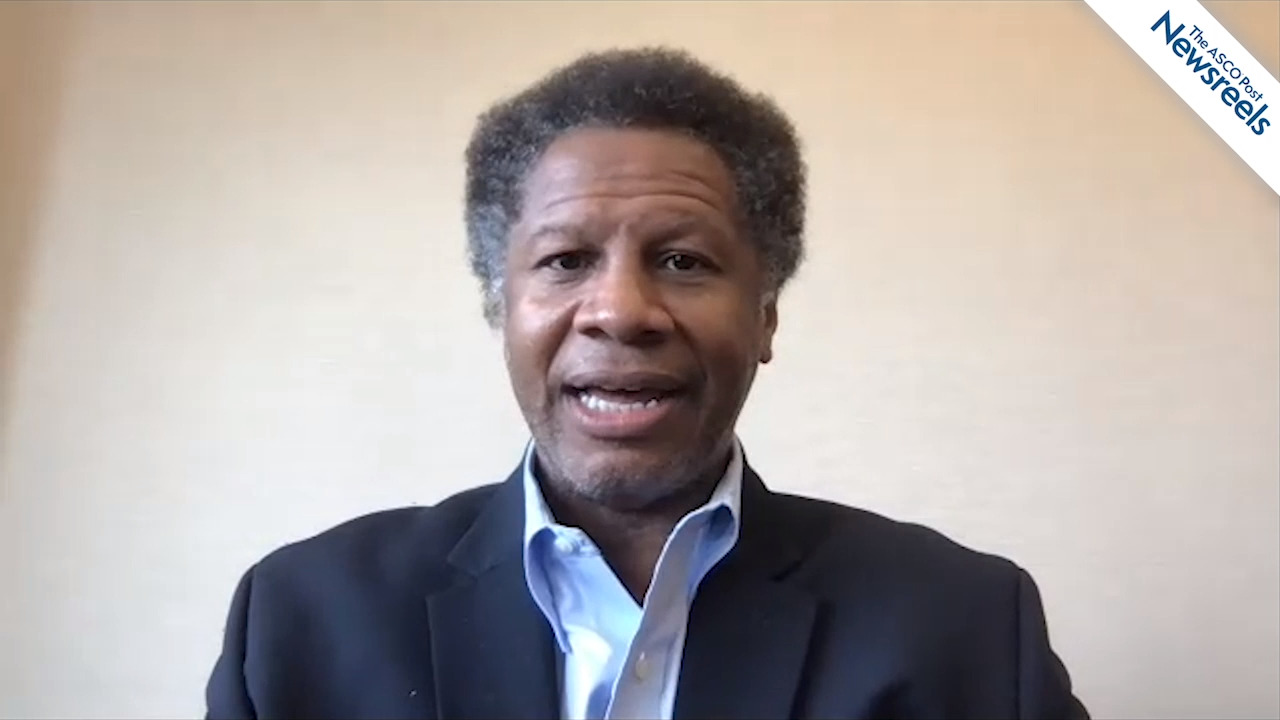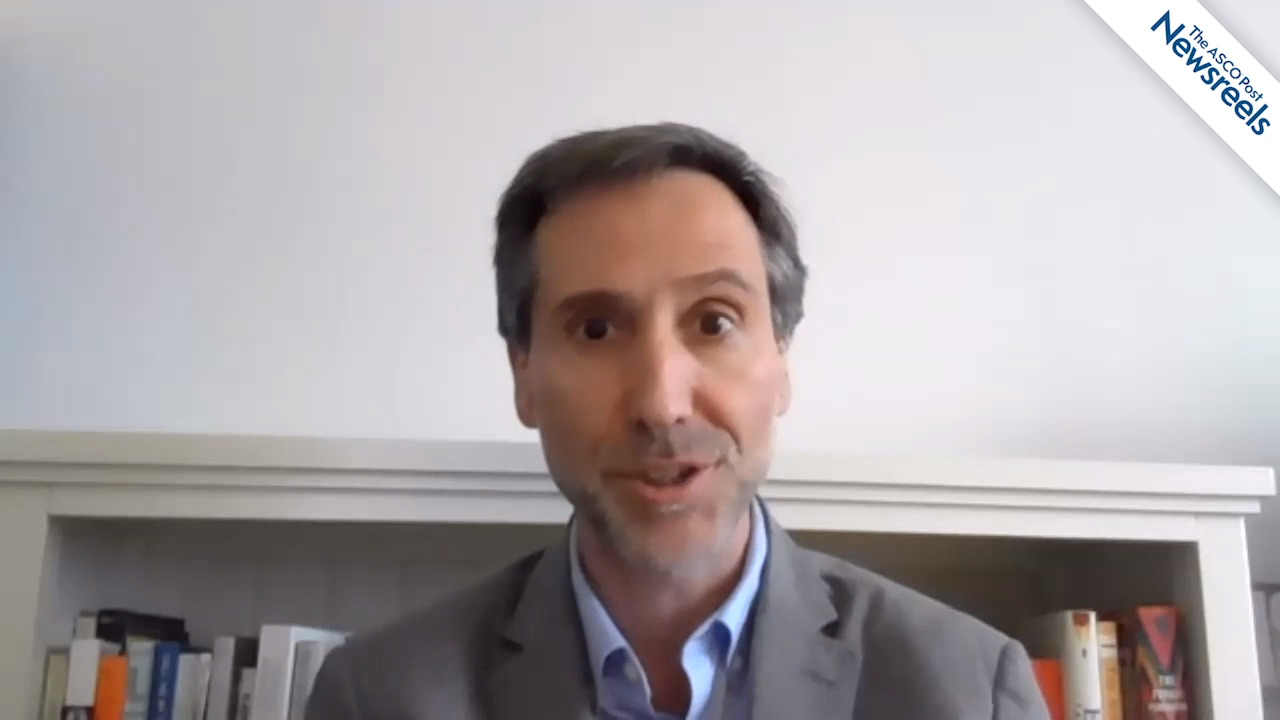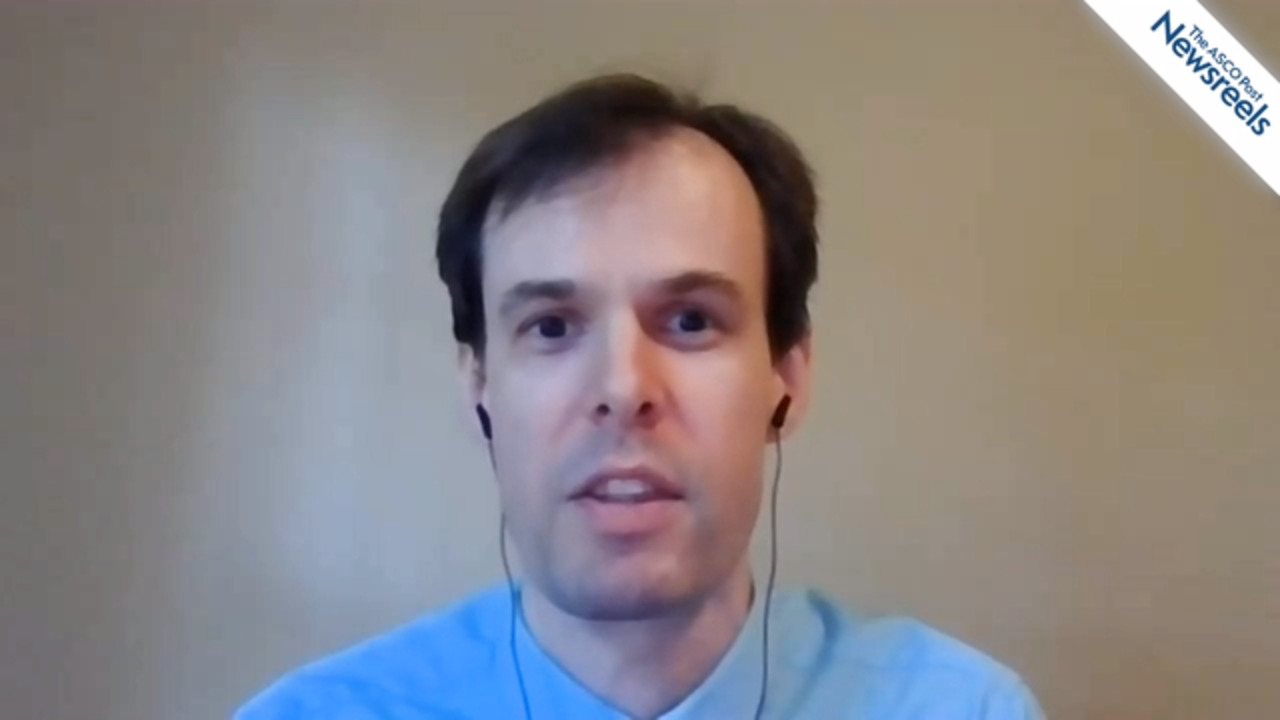Elizabeth H. Stover, MD, PhD, on Ovarian Cancer: Nivolumab Plus Bevacizumab for Relapsed Disease
AACR Virtual Annual Meeting 2020 II
Elizabeth H. Stover, MD, PhD, of Dana-Farber Cancer Institute, discusses an analysis of genomic alterations in patients with relapsed ovarian cancer who were treated with nivolumab plus bevacizumab in a phase II clinical trial. The study was conducted to identify potential biomarkers of response (Abstract 1048).
The ASCO Post Staff
Alfonso Bencomo Álvarez, PhD, of Texas Tech University Health Sciences Center, discusses his retrospective study of the incidence and survival for patients with hematologic malignancies residing at the United States/Mexico border. The analysis showed that 10-year survival rates for Hispanic patients with ALL, AML, and CML were significantly lower for those who lived in El Paso than for those who lived elsewhere in Texas (Abstract 4343).
The ASCO Post Staff
Silvia Formenti, MD, of Weill Cornell Medical College, discusses her continuing work, and the promising results emerging, in combining radiotherapy with immunotherapy to boost abscopal response rates. This combination therapy extends the use of radiotherapy to promote antitumor T-cell responses for both local and metastatic disease (Session ED37).
The ASCO Post Staff
Robert A. Winn, MD, of Virginia Commonwealth University and the Massey Cancer Center, discusses the COVID-19 pandemic and how it is exacerbating disparities in cancer care among racial and ethnic minorities and the medically underserved who are disproportionately affected by the coronavirus (Session VSS06).
The ASCO Post Staff
Antoni Ribas, MD, PhD, of the University of California, Los Angeles, Jonsson Comprehensive Cancer Center, summarizes a special panel discussion on ways to eliminate cancer health disparities among racial and ethnic minorities. Increasing minority representation in clinical trials, thus ensuring diversity, and recognizing the accomplishments of minority scientists and clinicians in the cancer workforce are among the solutions discussed (Session VSS08).
The ASCO Post Staff
Adam C. Palmer, PhD, of the University of North Carolina at Chapel Hill, discusses combining immune checkpoint inhibitors with other cancer therapies to provide patients with more chances of a response. In principle, similar benefits may result from sequential or biomarker-stratified treatments, which could be valuable in cases where toxicities may prevent full-dose combinations (Abstract 1047).
